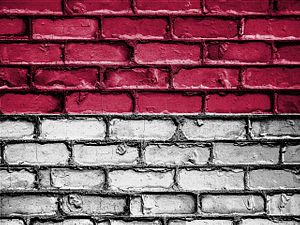By Sukmawani Bela Pertiwi
In 2006, amidst an outbreak of H5N1 virus (also known as the avian influenza virus), Indonesia provoked international tension as it refused to transfer virus specimens to the World Health Organization (WHO) for the purpose of vaccine production. The decision sparked heavy criticism from the international community as Jakarta was seen as being uncooperative in a time of crisis and putting self-interest above broader human health security.
More recently, in responding to the outbreak of COVID-19, Indonesia also demonstrated unique responses that sparked no less criticism domestically and internationally. Different from other countries in the region, which quickly closed their borders to foreigners, with some even imposing lockdowns in affected cities, Indonesia decided to keep its borders open and even spent billions of rupiahs to pay international influencers to promote domestic tourism. Even when Indonesia eventually restricted foreign entry to the country, the restrictions only applied to visitors from four major affected countries — China, Iran, Italy, and South Korea. This also only occurred in early March, when the government eventually confirmed there were two cases of COVID-19 in Indonesia. No doubt, Indonesia’s response has invited widespread criticism as being slow, opaque, and putting economic interests above public health.
Indonesia’s seemingly uncooperative responses, however, actually give us a clue to bigger problems in global health governance. Global health issues are a type of collective action problem that could not be solved by individual countries, particularly in the era of globalization where international trade and travel also pose the risk of rapid spread of infectious diseases across countries. Therefore, the solutions require coordinated action from all countries to work together to tackle the issue. If there is even one country being uncooperative by keeping their borders open, the efforts of other countries to close their borders become ineffective in containing the spread of the virus.
With severe enforcement problems, where the possibility for states to defect from cooperation is high, theoretically a strong institution or leadership is needed to ensure obedience. However, with China still facing a new load of cases from returning Chinese abroad, the United States climbing to become the most affected country in less than two weeks, and European countries occupying the majority of the top 10 most affected countries, there is practically no working leadership at the global level. The WHO has been seen as the leading institution in global health governance. However, it has been criticized not only for its lack of funding and resources, but also for its inefficacy in dealing with disease outbreaks. The WHO was also overshadowed by the many emerging actors in global health governance, which may offer more support but require more coordination to ensure strong collective leadership at the global level or at least to force countries, such as Indonesia, to follow recommendations.
There are also problems at the state level. The WHO, for its part, has tried its best to perform its task by issuing the International Health Regulation 2005, which provided regulations on public health responses to the international spread of diseases, including the core capacities that states have to meet within five years of its adoption. These include the capacity for surveillance, reporting, verification, notification, response, and collaboration activities. Many states, however, have reportedly failed to meet these capacities. Indonesia itself has been accused of being not transparent when it reported no cases of COVID-19 until early March. Its small number and increase of affected patients is seen as proof of the inability of the government to detect cases, with much smaller numbers of people being tested compared to other countries. Indonesia is not alone in this regard.
Lastly, related to Indonesia’s response to H5N1, there is still debate on the issue of access to medicine, particularly between developed and developing countries. Addis and Sundoro explain in their book chapter “Indonesia, Power Asymmetry, and Pandemic Risk” that Indonesia’s refusal to transfer the H5N1 virus specimens to the WHO was based on the consideration that there have been precedents where such virus specimens were used by companies to develop patented vaccines without permission from and acknowledgement of the sending countries — who, in the end, cannot afford to access the vaccine then created. As the sending countries usually are the ones who would be heavily affected by the diseases, Indonesia wanted to have access to the vaccine developed from its transferred virus specimens. Indonesia is not the only country that has raised this issue.
With this reflection on the bigger problem in global health governance, state responses to the COVID-19 pandemic could be used as momentum to improve global health governance to face more challenging issues in the future.
Sukmawani Bela Pertiwi is lecturer at the Department of International Relations, Bina Nusantara University, Jakarta.

No comments:
Post a Comment